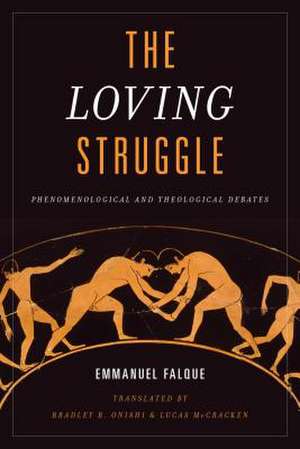LOVING STRUGGLE
Autor Emmanuel Falque Traducere de Lucas McCrackenen Limba Engleză Paperback – 14 oct 2018
Preț: 445.62 lei
Nou
Puncte Express: 668
Preț estimativ în valută:
85.28€ • 88.10$ • 70.97£
85.28€ • 88.10$ • 70.97£
Carte tipărită la comandă
Livrare economică 26 martie-09 aprilie
Preluare comenzi: 021 569.72.76
Specificații
ISBN-13: 9781786605320
ISBN-10: 1786605325
Pagini: 304
Dimensiuni: 152 x 229 x 25 mm
Greutate: 0.64 kg
Editura: Rowman & Littlefield
ISBN-10: 1786605325
Pagini: 304
Dimensiuni: 152 x 229 x 25 mm
Greutate: 0.64 kg
Editura: Rowman & Littlefield
Notă biografică
Emmanuel Falque is Professor of Philosophy at the Catholic Institute of Paris. He is well known for writings that combine an expertise in medieval philosophy, modern French phenomenology, and theology. His recent publications include Passer le Rubicon [Crossing the Rubicon] (2013), Saint Bonaventure et l'entrée de Dieu en théologie (2000); Dieu, la chair et l'autre [God, the Flesh and the Other] (2008) and the trilogy: Le passseur de Gethsémani (1999), Métamorphose de la finitude [Metamorphosis of Finitude] (2004), and Les Noces de l'Agneau [The Wedding Feast of the Lamb] (2011). His works have been translated into English, Spanish, and Italian.
Descriere
This book provides a critical introduction to twentieth-century French phenomenology and philosophy of religion. Emmanuel Falque, the most important voice in contemporary French philosophy of religion, offers a novel and creative philosophy of the body at the intersection of philosophy and theology.
